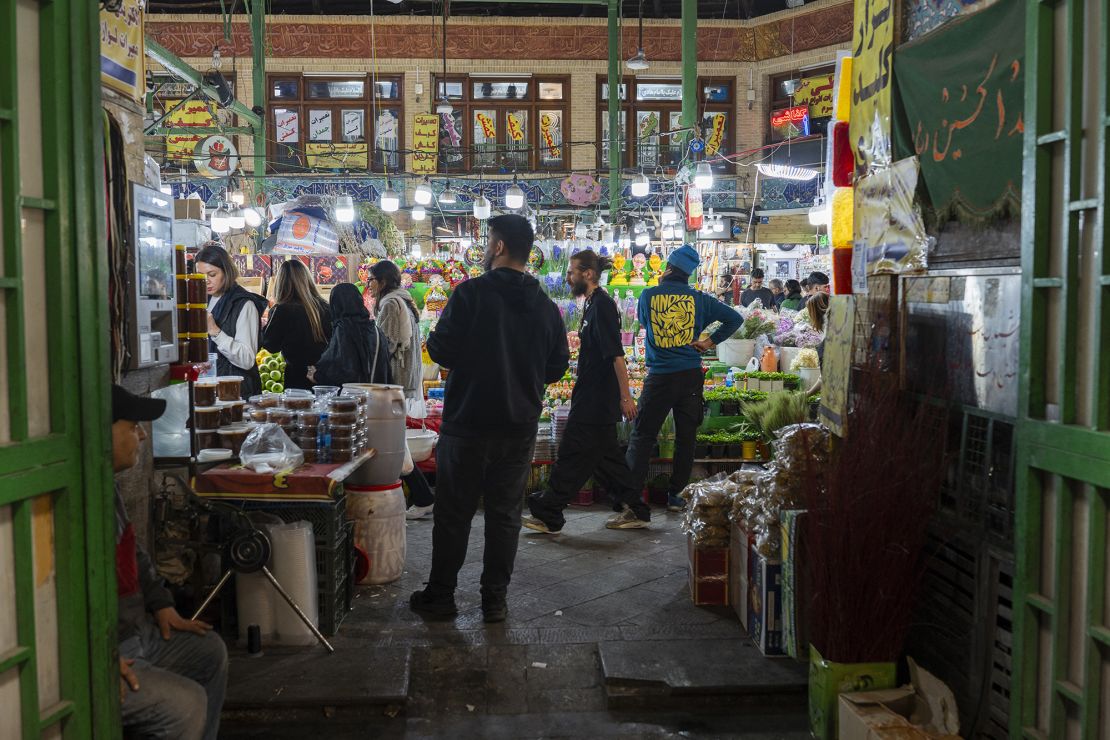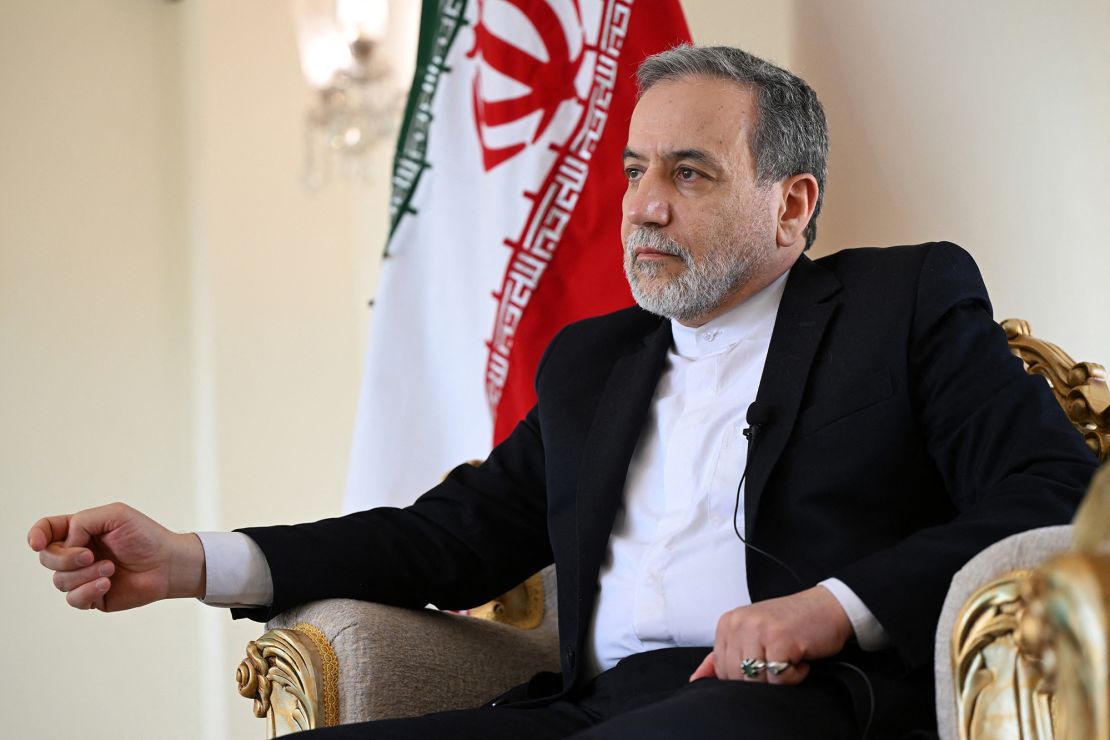Iran is crafting a potential nuclear agreement with the United States, wrapping it in language designed to flatter US President Donald Trump’s favorite persona: the dealmaker-in-chief.
Officials in Tehran have seized on Trump’s anti-war, pro-business image to pitch an Iran-US nuclear agreement as a way to help Trump fulfill his pledge to “make America rich again.”
Tehran’s argument is that a war with Iran would bleed American coffers, while diplomacy could open the door to economic prosperity.
To that point, Iranian Foreign Minister Abbas Araghchi presented his country as being open for American business in a Washington Post opinion article last month.

Related article ‘The Art of the Deal’ meets global reality
“Many in Washington portray Iran as a closed country from an economic point of view. The truth is that we are open to welcoming businesses from around the world,” he wrote. “It is the US administrations and congressional impediments, not Iran, that have kept American enterprises away from the trillion-dollar opportunity that access to our economy represents.”
Iranian officials are framing a potential deal as a business opportunity tailored to Trump’s priorities, including his emphasis on tariffs and demands for economic reciprocity, said Esfandyar Batmanghelidj, chief executive of the economic think tank Bourse & Bazaar Foundation.
“They see that Trump wants to be a kind of dealmaker. … They’re clearly understanding that Trump wants agreements that he can position as a win for the US economy.”
Iran and the US have had three rounds of largely indirect talks mediated by the Gulf Arab nation of Oman — the last of which, on Saturday, included technical discussions on the finer details of a potential deal. Both sides have expressed optimism.
Changing Trump’s calculus
Trump has repeatedly criticized the 2015 nuclear deal between Iran and world powers as not serving American interests. After he withdrew from it in 2018, he described it as “one of the worst and most one-sided transactions the United States has ever entered into.”
That deal, agreed to during the second Obama administration, primarily lifted secondary sanctions: US penalties aimed at non-American companies that trade with Iran. Primary sanctions, which directly bar US firms from doing business with Iran, mostly remained in place. As a result, foreign companies were allowed to re-enter the Iranian market, while US firms remained largely barred.

Related article As Trump offers new nuclear talks, Iran weighs the cost of losing its final leverage
Few American and foreign firms do business in Iran since the 1979 Islamic Revolution, and many Western businesses were hesitant to enter the country even after the 2015 deal was signed. The US Treasury Department can issue special licenses – typically for humanitarian trade – but nearly all other commercial activity remains off-limits.
Tehran appears to be trying to shift Trump’s calculus by framing a deal as a win-win. Iran’s foreign minister has even dangled access to its prized nuclear energy program – a symbol of national sovereignty and prestige that some US officials have sought to dismantle.
“Our longstanding game plan is to build at least 19 more (nuclear) reactors, meaning that tens of billions of dollars in potential contracts are up for grabs,” Araghchi said on X this week. He argued that the Iranian market is large enough to help “revitalize the struggling nuclear industry in the United States.”
For Western businesses, Iran represents an untapped and consumer-driven market of 90.6 million people, over 60% of whom are under the age of 35, according to market research firm Mordor Intelligence.
After the 2015 deal was signed, McKinsey Global Research estimated that Iran could add $1 trillion to its GDP and create 9 million jobs within 20 years of the agreement going into effect if it pursued structural reforms and attracted investment.

Iran’s economy produced $434 billion worth of goods and services in 2024. But when adjusted for local prices and living costs – a measure known as Purchasing Power Parity – Iran’s GDP jumps to $1.7 trillion. The big gap between the two numbers reflects how small Iran’s economy looks from the outside due to its weak currency and international sanctions.
That gap is where the untapped opportunity lies, according to Bijan Khajehpour, managing partner of the Vienna-based Eurasian Nexus Partners, a consulting firm. International companies can help fill the gap and benefit from it, he said.
That prospect may be tempting for American firms, but past experience and current realities suggest doing business in Iran won’t be easy. Even if a new nuclear deal is reached, it won’t automatically open the door for US companies.
The IRGC’s growing economic footprint
The US largely applies two types of sanctions on the country: those linked to its nuclear activities, and those linked to terrorism. Iran is designated by the US as a state sponsor of terrorism and its Islamic Revolutionary Guards Corps (IRGC), an elite paramilitary force that is deeply embedded in the country’s economy and politics, is considered a Foreign Terrorist Organization.
Even if current talks over Iran’s nuclear program succeed, terrorism-related sanctions are likely to remain in place – meaning American companies would still need case-by-case approval, via licenses from the US Treasury’s Office of Foreign Assets Control (OFAC), to do business in some sectors there.

Related article Why the next round of Iran-US nuclear talks may be tougher
Over the years, the IRGC has expanded to become a state institution that functions parallel to the government with an ever-expanding economic footprint.
Experts say the IRGC’s role in Iran’s economy has only grown since the US pulled out of the last nuclear agreement, potentially making it even more difficult for US companies to enter.
With foreign companies reluctant to do business there, Iranian Supreme Leader Ayatollah Ali Khamenei has championed a “resistance economy,” a strategy focused on self-reliance and reducing dependence on foreign imports and investments. The IRGC has stepped in to fill the vacuum, expanding its role in sectors like construction, banking, telecoms and oil.
“The ownership of economic players has shifted away from the government, moving towards what we call semi-state entities,” said Khajehpour, who has advised international companies on Iran. “Some of these semi-state entities are sanctioned and foreign companies have to appreciate the various risks of their partnership strategies.”
Decades of war, sanctions and economic stagnation, as well as corruption and the “ambiguities of Iranian business culture,” have made doing business in the country “complex,” he said.
Overcoming hurdles to doing business
After the inking of the 2015 deal, Western companies like Boeing, Total, Peugeot and Nestle became some of the early movers into Iran. Boeing, for example, finalized a $16 billion contract to sell Iran Air 80 aircraft after receiving a license from OFAC. But the US government revoked the license during Trump’s first term, nullifying the contracts.
If the hurdles can be overcome, trade could resume – most notably with the potential revival of the Boeing deal – but other opportunities also abound, Khajehpour said. In addition to oil and gas, Iran offers potential partners mining prospects (including rare metals), a growing digital economy, and an educated labor force, he added.

One way to enable American business entry into Iran, said Batmanghelidj, would be to replicate a workaround introduced in the 2015 nuclear deal: an exception that allowed non-US subsidiaries of American firms to operate in Iran under strict conditions.
A key difference this time, he noted, is that US-aligned Gulf Arab states now support an Iran nuclear deal and have shown willingness to engage economically with Iran. That’s in stark contrast to the last round, when they severed ties with the Islamic Republic soon after the deal was implemented. Araghchi, Iran’s chief negotiator, has made a point of keeping Arab neighbors informed of the talks’ progress.
The US can gain indirect exposure to the Iranian market by working through Gulf states, where many American companies have regional headquarters, Batmanghelidj added.
Still, he cautioned, none of this is possible if the businesses remain hesitant to engage, given lingering doubts about the durability of any new deal – especially after Trump’s withdrawal from the 2015 agreement.
“Despite all of the baggage we have over the 2015 nuclear deal falling apart, there are a lot more tools that could be used to find ways of structuring a win-win,” Batmanghelidj said.
“If the two sides are serious about structuring aspects of this deal to make sure that there’s an economic benefit for the US, then there are things that can be done,” he added. “Ultimately, you still have a middle class in Iran that wants access to imported goods and would love to be able to buy more American brands.”